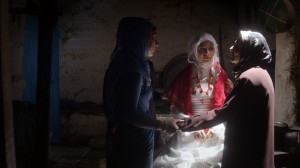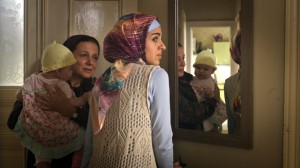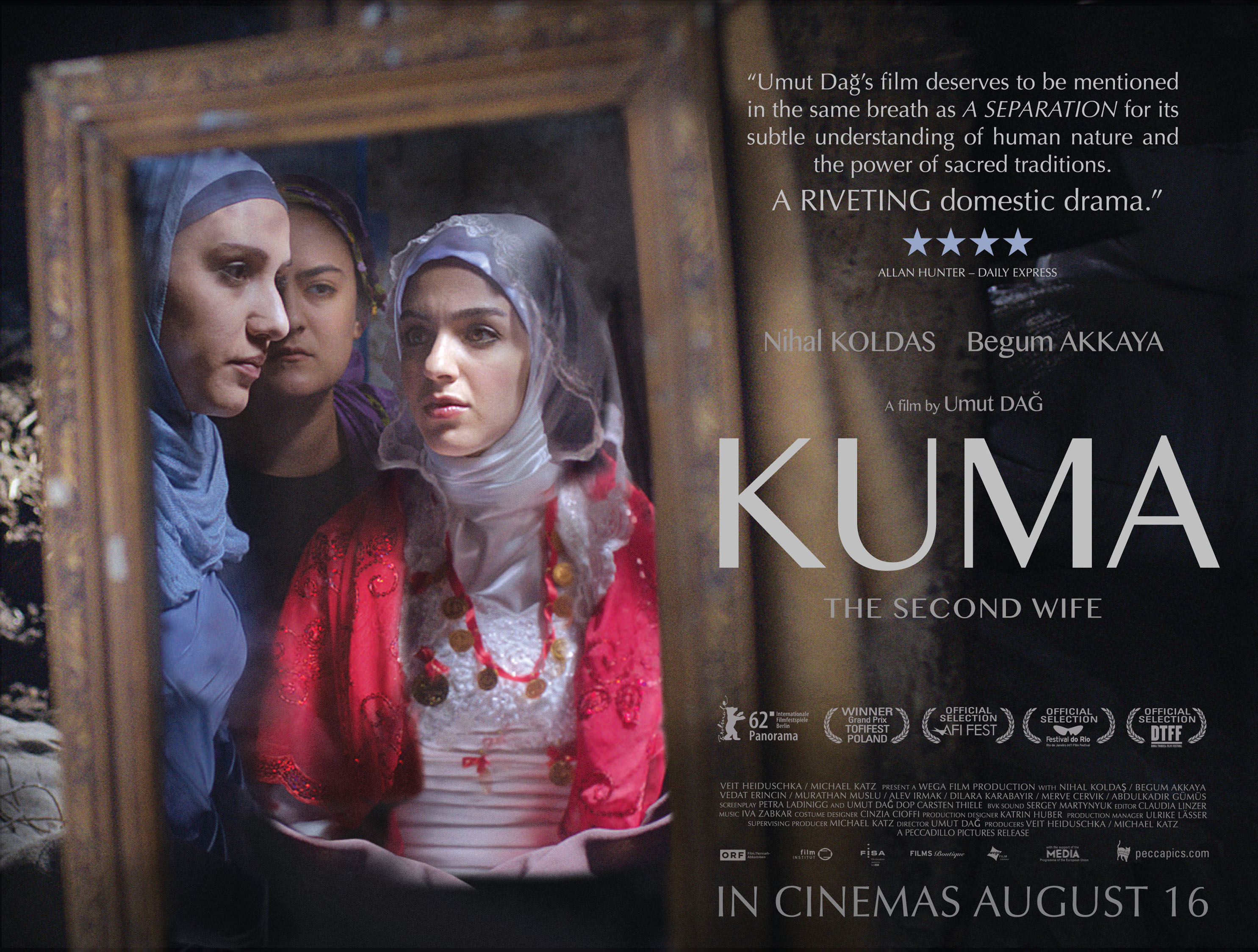 Familial relations are a complicated, challenging thing, especially as the network extends and the ties grow looser and the frictions greater. Umat Dag’s first film Kuma charts the course of disarray with impressive finesse.
Familial relations are a complicated, challenging thing, especially as the network extends and the ties grow looser and the frictions greater. Umat Dag’s first film Kuma charts the course of disarray with impressive finesse.
Dag begins purposefully on a note of discordance, throwing audiences into the furore of a chaotic Turkish wedding as hundreds of excitable women kiss cheeks amidst the excitement of a new union. Just as quickly, the bride Ayse, is in a car headed for a new home Austria. With the move in location, a tonal shift, from chaos to quietude. The face of Ayse is not one of post-marital bliss and the car tracking the beautiful Turkish countryside quickly looks more like a funeral procession than a honeymoon escort. In a few minutes, and without a hint of exposition or a line of dialogue, it is clear that something is not usual about the state of this marriage. Next, the title, Kuma, meaning ‘second wife’ in Turkish. Oh, could be that then. Though Ayse’s status as backup wife to an already married man turns out not to be the problem as much as the trigger for a a whole host of unrest.
The amount expressed in this pre-titles sequence without words sets the standard for a film where for a good portion, a lot is left simmering and unsaid, but plain to see. This subtlety of expression is Dag’s films greatest strength. In the first hour, where plenty of tension builds but nothing spills over, Dag reveals himself to be a skilled director of small drama. He shows an understanding of the dramatic potential of the claustrophobia of familial life through a number of scenes where the walls seem to close in on the pressured family unit in focus. Dag is aided by a host of strongly brooding performances, especially the lead Ayse (Begum Akkaya) who conveys a constant humility that threatens constantly and visibly to break under the presence of unrelenting hostility, her eyes pained while her face is smiling. It is only when the bubbling dramaturgical unrest gives way for volcanic upset that he reveals his inexperience to a degree.
unsaid, but plain to see. This subtlety of expression is Dag’s films greatest strength. In the first hour, where plenty of tension builds but nothing spills over, Dag reveals himself to be a skilled director of small drama. He shows an understanding of the dramatic potential of the claustrophobia of familial life through a number of scenes where the walls seem to close in on the pressured family unit in focus. Dag is aided by a host of strongly brooding performances, especially the lead Ayse (Begum Akkaya) who conveys a constant humility that threatens constantly and visibly to break under the presence of unrelenting hostility, her eyes pained while her face is smiling. It is only when the bubbling dramaturgical unrest gives way for volcanic upset that he reveals his inexperience to a degree.
Kuma’s premise, touched upon before, is hard to comprehend cross-culturally, but valuable for its covering of a challenging idea. Ayse, 19, moves to Austria to marry a much older man who already has a wife, Fatma (Nihal Koldas), but goes under the widely believed guise that she is marrying the son, Hasan (Murathan Muslu). This arrangement is apparently agreeable to the current wife, who is battling cancer, and feels that a good woman will be needed to look after husband, house and kids after her demise. The children are less convinced, and meet their new family member with a hostility that is aimed at both her status as new house-matriarch and as a rural girl from the homeland. They call her “bumpkin,” which seems to carry more weight in Turkish, and tell her to “stop humming” because she’s not in her “village now.” Dag taps into this cultural distance that the Austrian setting provides well, what one of the daughters calls “a world between us,” as well as mining conflict from the problems of gossip and reputation within small communities, as well as the destructiveness of familial jealously, particularly between competing young females.
 These already powerful, and decidedly well realised internal disruptions eventually give way for a number of much greater conflicts – controversies including a suppressed homosexuality, an extra-marital affair and a death in the family – to the point that whereas Ayse’s arrival had first caused tremors, it now drives a fault line through the family. The family collapses with such intensity as a result of so many contrivances that it does feel a little soap-opera-esque in all of its weighty histrionics, though admittedly well handled considering. The acuity that Dag displays before this all-out-breakdown though shows a director with an affinity for quiet moments with grave undercurrents, small drama masking greater damages and long buried grievances, and it is in this drama of suppression where Kuma‘s power resides longer.
These already powerful, and decidedly well realised internal disruptions eventually give way for a number of much greater conflicts – controversies including a suppressed homosexuality, an extra-marital affair and a death in the family – to the point that whereas Ayse’s arrival had first caused tremors, it now drives a fault line through the family. The family collapses with such intensity as a result of so many contrivances that it does feel a little soap-opera-esque in all of its weighty histrionics, though admittedly well handled considering. The acuity that Dag displays before this all-out-breakdown though shows a director with an affinity for quiet moments with grave undercurrents, small drama masking greater damages and long buried grievances, and it is in this drama of suppression where Kuma‘s power resides longer.




